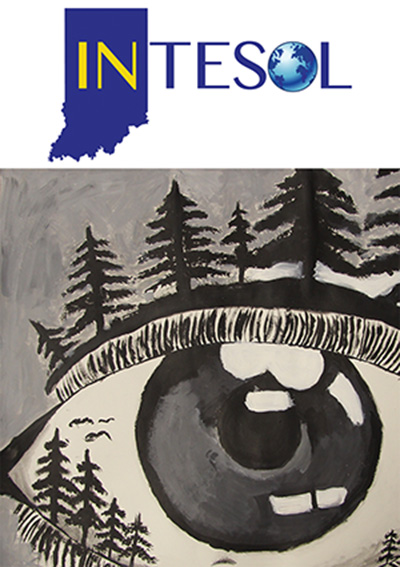Translingual Practices in the First-year International Students’ English Academic Writing
Abstract
The translingual orientation in literacy suggests that multilingual students bring with them the awareness of intercultural communication and the competence of translanguaging between different discourse communities, which prepares them to learn the new forms of writing in their second language. Nevertheless, multilingual students’ pursuit of the “nativeness” in English writing seems counter to the ideology of translingualism. This research explores how writing teachers address those students’ needs to adapt to standardized academic English writing while simultaneously developing their ability to negotiate language differences and to write across contexts with all the linguistic resources available. The findings demonstrated that multilingual students intuitively adopted translingual strategies in English writing but became more critical about their language repertoires if they are appropriately introduced to the concept of translingualism. Accordingly, pedagogical implications for ways university writing teachers can help multilingual students improve academic literacy through a translingual approach are essential.
References
Bawarshi, B. (2010). The Challenges and Possibilities of Taking up Multiple Discursive Resources in U.S. College Composition. In B. Horner, M-Z. Lu and P.K. Matsuda (Eds.), Cross-language Relations in Composition (pp.196-203). Carbondale and Edwardsville: Southern Illinois University Press.
Canagarajah, A. S. (2002). Multilingual Writers and the Academic Community: Towards a Critical Relationship. Journal of English for Academic Purposes, 1(1), 29-44. doi: 10.1016/S1475-1585(02)00007-3
Canagarajah, A. S. (2010). A Rhetoric of Shuttling between Languages. In B. Horner, M-Z. Lu and P.K. Matsuda (Eds.), Cross-language Relations in Composition (pp.158-182). Carbondale and Edwardsville: Southern Illinois University Press.
Canagarajah, A. S. (2011). Codemeshing in academic writing: identifying teachable strategies of translanguaging. The Modern Language Journal, 95(3), 401-417. doi: 10.1111/j.1540-4781.2011.01207.x
Canagarajah, A. S. (2013). Negotiating Translingual Literacy: An Enactment. Research in the Teaching of English, 48(1), 40-67.
Horner, B., Lu, M-Z., Royster, J. J. and Trimbur, J. (2011). Language Difference in Writing: Toward a Translingual Approach. College English, 73 (3), 303-321. doi: 10.2307/4140679
Lu, M-Z. (2004). An essay on the Work of Composition: Composing English against the Order of Fast Capitalism. College Composition and Communication, 56, 16-50. doi: 10.2307/4140679
Lu, M. Z. (2009). Metaphors matter: Transcultural literacy. JAC, 285-293. doi:10.2307/25472180
Lu, M-Z. and Horner, B. (2013a). Translingual Literacy and Matters of Agency. In A.S. Canagarajah (Ed.), Literacy as translingual practice: Between communities and classrooms (pp.26-38). London: Routledge. doi: 10.1080/01434632.2016.1186409
Lu, M-Z and Horner, B. (2013b). Translingual Literacy, Language Difference, and Matters of Agency. College English, 75 (6), 582-607. Retrieved from http://www.jstor.org.proxyiub.uits.iu.edu/stable/24238127
Mangelsdorf, K. (2010). Spanglish as Alternative Discourse: Working against Language Demarcation. In B. Horner, M-Z. Lu and P.K. Matsuda (Eds.), Cross-language Relations in Composition (pp.113-126). Carbondale and Edwardsville: Southern Illinois University Press.
Marshall, S. and Moore, D-L. (2013). 2B or Not 2B Plurilingual? Navigating Languages Literacies, and Plurilingual Competence in Postsecondary Education in Canada. TESOL Quarterly, 47 (3), 472-499. doi: 10.1002/tesq.111
Pennycook, A. (2010). Language as a Local Practice. London: Routledge.
Tupas, T. R. F. (2010). Which norms in everyday practice. And why? In A. Kirkpatrick (Ed.), The Routledge handbook of world Englishes (pp. 567–579). London, England: Routledge.
Yin, R. K. (2003). Case study research: Design and methods. Thousand Oaks, CA: Sage.
You, X-Y. (2010). Writing in the Devil’s Tongue: a history of English composition in China. Carbondale: Southern Illinois University Press.


